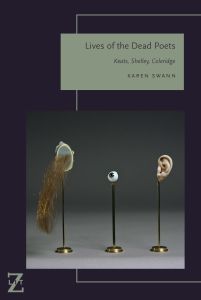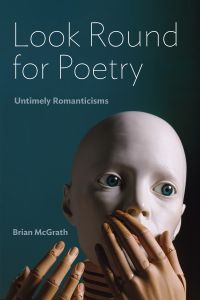The Location of Experience
Victorian Women Writers, the Novel, and the Feeling of Living

This book can be opened with

WINNER, JAMES RUSSELL LOWELL PRIZE, MODERN LANGUAGE ASSOCIATION
We tend to feel that works of fiction give us special access to lived experience. But how do novels cultivate that feeling? Where exactly does experience reside?
The Location of Experience argues that, paradoxically, novels create experience for us not by bringing reality up close, but by engineering environments in which we feel constrained from acting. By excavating the history of the rise of experience as an important category of Victorian intellectual life, this book reveals how experience was surprisingly tied to emotions of remorse and regret for some of the era’s great women novelists: the Brontës, George Eliot, Margaret Oliphant, and Elizabeth Gaskell. It shows how these writers passed ideas about experience—and experiences themselves—among each other.
Drawing on intellectual history, psychology, and moral philosophy, The Location of Experience shows that, through manipulating the psychological dimensions of fiction’s formal features, Victorian women novelists produced a philosophical account of experience that rivaled and complemented that of the male philosophers of the period.
The Location of Experience: Victorian Women Writers, the Novel, and the Feeling of Living is available from the Knowledge Unlatched on an open-access basis.
The relationship between experience and realism, what it means and what it feels like to read fiction: in Adela Pinch’s hands, these longstanding questions come to seem newly strange and newly fascinating. Part of her genius lies in considering how formal problems intersect not just with the experience of reading, but with what we read for: how we think about care, human vulnerability, and our existence in and through others. The Location of Experience will be required—and deeply pleasurable—reading for all who are interested in the novel, the Victorian period, or what ‘counts’ as experience in the first place.—Rachel Ablow, University at Buffalo, SUNY
This impressive and beautifully written book models a new way of understanding Victorian realism and the enduring compacts it makes with generations of devoted readers. Pinch unfolds a set of arguments linked by a carefully historicized conception of experience: its putative presence or absence as a precondition for imaginative writing; the way family feeling reverberates through narrative choice; the two-way tug of desire and prohibition in the plotting of character trajectories.—Vanessa Smith, University of Sydney
[Pinch] offers a thrilling and richly particularized account of how we come to feel that lived experience is happening in Victorian fiction.—Victorian Studies
Introduction | 1
Experience on the Move: Transitioning, Transferring,
Containing, 3 • Narrative Relations, Novel Worlds,
7 • The Organization of This Book, 10 • Women
Writers, Women Readers, Feminist Theory, 12 •
Acknowledgments, 15
1 Transfers of Experience: Brontës, Gaskell, Meynell, Sinclair | 18
Introduction, 18 • Experience in Victorian Philosophy,
22 • The Brontës and Experience, 29 • May Sinclair,
33 • A Distributed-Brontë Theory of Experience, 37 •
Images of Haworth, 40 • Coda: Little Brontës, 50
2 The Story of O: Margaret Oliphant and Anti-metalepsis | 56
Introduction, 56 • The Story of O, 60 • “No One to
Interfere,” 63 • “Let Me In!,” 68 • The Story of “Oh!,”
75 • The O of Experience and the World Stack, 81
3 George Eliot and Prolepsis: Prediction, Prevention, Protection | 85
Introduction: Rethinking Prolepsis, 85 • Beginnings
and Endings, 93 • The Future in “The Lifted Veil,”
95 • Predicting the End in The Mill on the Floss, 98 •
Will, Determinism, Necessity, and Narration, 103 •
Development, Education, and the Futures of The Mill on
the Floss, 108 • Coda: Silas Marner, 111
4 Regret, Remorse, and Realism in Elizabeth Gaskell | 117
Introduction, 117 • Half-Mended Stockings, 123 •
Lines and Angles, 126 • What Never Happened, 133 •
Remorse, Narration, Description, 136
Coda | 144
Notes | 151
Bibliography | 189
Index | 209
Please click the link below to download the Open Access version of this book.
- The Location of Experience - epub





